Posted on July 2, 2010 | Link to original
Dear Fellow Traveler:
The United States is having its 234th birthday this weekend — a good time to check with something called the Sibley Chart. This is the best-accepted chart for the United States, dated July 4, 1776 and with a time of 5:10 pm local time, Philadelphia. The time of the chart has been debated; if you’re curious about the backstory you may check out the page in Astrodatabank that discusses the issue. I was a bit skeptical of this chart until the Sept. 11, 2001, incident, which basically proved the time is accurate — that ascendant degree of 12+ Sagittarius turned out to be pretty sensitive, confirming that this is a working chart to within a few minutes of accuracy.
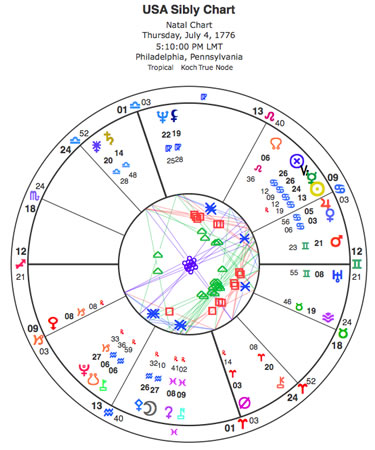
To sum up the transits the U.S. chart is now taking: every aspect of American life is in the process of profound and sweeping changes that we can barely imagine. It’s hard to counsel a whole nation, but if this were a client, I would prepare them to go through a series of transformations, inner and outer, that create an entirely different life in just a few years. The chart aligns exactly with the cardinal T-square that we’ve been discussing. Were the United States a person, the angles of American life that would be most affected over the next two years are sense of identity and perception in the world (ascendant), personal resources (2nd house) home and security (4th house), marriage and partnership contracts (8th house), and reputation, career and goals (10th house).
The Sibley Chart has Sagittarius rising, which describes our sanctimonious, religion-obsessed, expansion-obsessed nation. We love to spread out, and for the first couple of hundred years of our existence we did quite a bit of it. We still think that’s what we do, even though at the moment we’re shrinking both in influence and in economic strength. Our military is mired in two wars that have no goal and no limit to their expense; that is not growth, unless you supply guns and hamburgers to the troops. Our treasury borrows every day, taxing the distant future, to wage these wars, and there are no protests against them. This week Republicans in the Senate blocked renewal of unemployment benefits to more than a million Americans while it will spend billions to kill people in Iraq and Afghanistan under a false pretense of being at war with Al Qaeda.
There is a story to how this came to be, in the form of a transit that happened a while ago.
A transit is when a real-time planet makes an aspect to a planet in the natal chart. The Sept. 11 incident involved the opposition of Saturn and Pluto exactly — to the degree — across the 1st and 7th house cusps of the Sibley chart (Pluto in Sagittarius, the ascendant, and Saturn in Gemini, the descendent). This high-pressure meeting, which first occurred in the mid-summer of 2001, inflicted serious damage to our society and in turn, to many other societies. Rather, how we handled the whole thing inflicted the damage. It’s possible to thrive under a combined Saturn-Pluto transit (most of us did), but that would necessarily come with raising awareness, meeting the challenges of growth and changing one’s ways when necessary.
Instead, with the blessing of an American public humiliated, terrified and bent on revenge, the United States commenced the 21st century with an agenda of nonstop war, which we are now paying for with our unemployment rate and the sad fact that we cannot afford basic services for our people.
This is a lesson, and one we would do well to learn, if learning is still possible: we get a choice how we respond to national and global events, and how we respond actually matters. The transits that we’re having now are significantly more powerful than those of 2001, which is saying a lot. Each of these transits suggests some outer manifestation, as well as a decision and growth process that we can go through as a nation; if, that is, we consider ourselves part of a nation. We tend not to talk to our neighbors in the United States. We don’t usually sit in cafes and have conversations; we grab a Hot Pocket on the run. If we consider ourselves part of a group, we think of ourselves as factions, as special interests, or as viewpoints.
Yet we rarely question our viewpoint, and most people lack the critical-thinking skills to dismantle what they see on Fox News.
The Grand Cross and the Sibley Chart
Let’s take a look at the transits the U.S. chart is under. These are the kinds of events that would happen never or once or twice in the life of a human; many are happening for the first or second time in the history of our country. More significant is the fact that these transit events are all happening simultaneously. And best of all, the U.S. has an Aries Point chart, with both planets and angles in the early degrees of the cardinals signs. In fact it’s hard to imagine a chart taking any more high-energy transits at one time than the Sibley chart is having now. The United States is oriented to absorb the full impact of the cardinal T square, described in detail two weeks ago. What an awesome opportunity for cultivating maturity and taking leadership. We can, if we want, design the prototype of a new society with these transits: with a different basis economy, new energy resources and a fair model of governance.
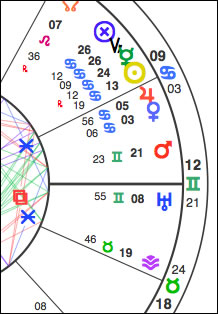
In the Sibley chart, Venus and Jupiter are placed at the beginning of a cardinal sign (in Cancer), meaning they are in aspect to the Aries Point. So, too, is the vertical axis of the chart (the dark line tilted a little toward the left, called the MC/IC axis, which is in early Aries-Libra). These highly sensitive points are simultaneously taking transits from Jupiter, Saturn, Uranus and Pluto.
Notice that streak of natal planets on the upper right, in the sign Cancer. Let’s call that the Cancer stellium. That grouping, in the 8th house of sex, death, taxes, banking and transformation, represents our inheritance as a nation: the incredible wealth that we started with. Cancer can have a feeling of collectivism, of populism, of family and of authentic bonding. That 8th house is the one that says:
Give me your tired, your poor,
Your huddled masses yearning to breathe free,
The wretched refuse of your teeming shore.
Send these, the homeless, tempest-tost to me,
I lift my lamp beside the golden door!
Right now and through the next few years, these Cancer planets are all going to take dozens of transits. These include squares from Saturn in Libra, squares from Uranus in Aries and oppositions from Pluto in Capricorn. In other words, if you think the news is nonstop madness now, we’re just getting warmed up. And apropos of the Aries Point, it’s all, constantly, going to have a personal feeling. The Moon, as well, is taking a major transit — from both Chiron and Neptune.
Yet all of these transits are opportunities for change and progress. Because so many are connected to the Aries Point, they will have a tendency to bring people in — to include us in the experience of growth and change. Let’s go over a few of these events:
Saturn over the MC and into the 10th house (2010-2012). Translation: the government (a 10th house entity) is about to go through big changes — bigger than we’ve seen in generations. With a Libra midheaven, we have the ability to have a just and fair government, if that is what we want — so we better get wanting and step up to the challenge. Either we start taking the process of governance seriously (rather than as a place to vent venom and paranoia), or the friendly Libra façade of our government falls to the ground and shatters, revealing what is beneath it. The United States has spent many years inflicting its cruelty on other countries, under the guise of liberty, justice and spreading democracy. We can now rebuild our own country and create a government that is responsive to the needs of the people, and of legitimate business enterprises that will help guide us into the 21st century more smoothly and consciously than we’ve been seeing so far.

Pluto opposite the Cancer Stellium (2010-2020). Translation: our values, such as they are, are threatening our wealth. But we can transform our values, on the one hand going back to something simpler, and on the other, making room for necessities that are distinctly about our moment now. We are obsessed by the idea of corporate greed and, as a culture, must openly challenge (for example) the entitlement of BP to do what it is doing to our food supply and to the oceans of the world. Pluto in Capricorn, in the 2nd house, would say we need new values, and one way or another we’re going to get them. It’s going to start with energy, both how we create it and how we use it. The 2nd house (where Pluto is, in the U.S. chart) is about the resources we have on hand — and that is what we need to depend on. We have wind, sunshine and a lot of land. We don’t need to buy oil — and the transition has begun. Driving across Iowa two weeks ago, I was stunned at how many massive windmills there are. Pluto in Capricorn (along with other factors) is saying we need to stop letting our values be dictated by television commercials.
Saturn and Uranus square the Cancer Stellium (2010-2017). Translation: we need to recreate our financial sector. Anyone know of a big luxurious island without cable or satellite we can send all the investment bankers to? Our economy needs a deeper basis than greed or survival. We need to set a goal of taking care of as many of our people as we can with the resources that we have — and that needs to become the basis of the banking system.
Neptune and Chiron Conjunct the Moon. This process has been going on for a long time, and it’s going to last for a while longer. It is here to remind us of the incredible denial trip we’re on as a nation, and our need to wake up and be honest with ourselves. The Moon can represent the public, in a public chart such as this. Neptune represents a kind of anesthesia: a dreamy delusion that we think of as a comfort zone. We are a country where many parents put their children on antidepressants. We don’t want to deal with authentic feelings (instead, we substitute anxiety), and we have a tendency to pretend that things that are happening aren’t happening. We do not understand the concept of moderation. As long as we live on corn syrup and mood stabilizers, we won’t be able to feel our way through this growth phase. We could spur this whole process by sobering up a little and going back to eating real food.
Chiron conjunct the Moon will feel, to many, like a rude awakening, though anytime Chiron is having a challenging influence you can be sure it’s the most recent of many notices — and that there is an opportunity for healing. This is a calling to awareness, sensitivity and focus. If we pay more attention to facts and less attention to opinions, we might see what we’ve got going on. And that Aquarius Moon, above all else, says: we’re all in this together.
Yours & truly,
![]()
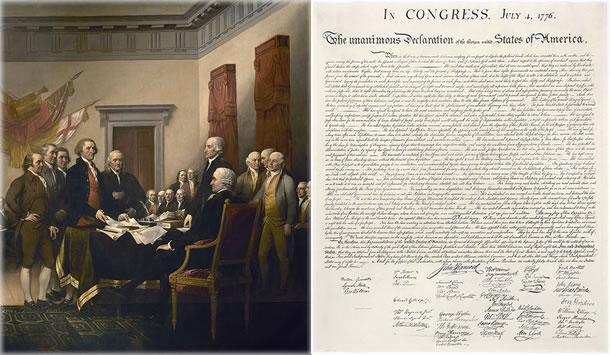
Divided We Stand | Political Waves
Once again I am struck by the sheer absurdity of our political situation. This week Mike Huckabee held forth at FOX News about the ‘ick factor’ in homosexuality, while Elena Kagan, vetted by Congress as a Supreme Court candidate, insisted that Don’t Ask, Don’t Tell policies present an unacceptable level of bias in the workplace. General McChrystal retired, and Petraeus changed tactics in Afghanistan to expand the killing rather than pursue the delicate mission of nation building. Unemployment extension failed again; the Republicans called those without work lazy and suggested that those still receiving checks should be tested for drugs.
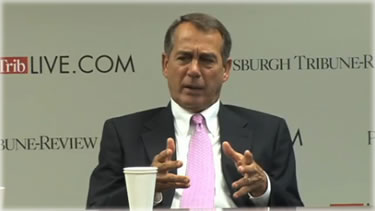
To fund more war, House Minority Leader John Boehner proposed that Social Security be pushed back to age 70, adding that the proposed financial reform is similar to “killing an ant with a nuclear weapon.” Running against Majority Speaker Harry Reid, Nevada candidate Sharron Angle proclaimed that God’s plan for those impregnated by rape or incest does not include abortion. Glenn Beck has embraced the real spirit of Martin Luther King, of which the majority of us remain unaware. Oh, and don’t forget that Hurricane Alex, the earliest superstorm in fifteen years, is pushing oil in the Gulf onto land with 90 mph winds.
If you’re thinking just shoot me now, that’s exactly what I think, several times a day. How is it possible that we’ve come to such a pass? How did the national conversation become so thick with preposterous distractions while real solutions are obstructed? How is it that the progressive policies we so desperately need are thwarted at every turn? You won’t be surprised to learn that this was all planned, well in advance of our current crises. “Government is the problem,” is a political meme that found its champion in folksy Ronald Reagan.
Our 40th president was once a Democrat, then ran for office as a Republican, but was clearly Libertarian in his heart of hearts. Populist conservatisms can be found in St. Ronnie’s vision of deregulation, limited taxes and non-interference from government. His message was pointedly Christian, born in the cradle of white elitism. “We who live in free market societies believe that growth, prosperity and ultimately human fulfillment, are created from the bottom up, not the government down,” said sunny, old Ron. “Public servants say, always with the best of intentions, ‘What greater service we could render if only we had a little more money and a little more power.’ But the truth is that outside of its legitimate function, government does nothing as well or as economically as the private sector.”
Reagan also proclaimed, “Approximately 80% of our air pollution stems from hydrocarbons released by vegetation, so let’s not go overboard in setting and enforcing tough emission standards from man-made sources.” Warming deniers still quote this gospel according to St. Ronnie. After Jimmy Carter’s unwelcome ‘stern Daddy’ warnings about energy, environment and economy, Ron wasn’t just a popular president, he was a free-market enabler who broke down the walls of corporate mistrust erected by FDR, replacing them with suspicion of government and disdain for social safety nets. He’s the ‘dotty, old Daddy’ of every disaster we face today.
Since Reagan broke the barriers and established deregulation as the answer to America’s most pressing needs, government ineptitude has flourished under the Republican administrations that followed. Democratic administrations have failed to restore any semblance of a balance of power between business and government. Even Richard Nixon was too liberal for Reagan’s vision of America. His ‘small government’ philosophy has grown more strident and garbled, less nuanced and defensible, during ensuing decades of financial volatility and evangelical explosion.
How do we fight this level of disinformation? One might think that facts would be enough, but they aren’t. Clearly, the private sector is not dedicated to the public good. Government’s dependence upon private services has put BP in the catbird seat in the Gulf and keeps Blackwater in charge of security in the wars. Despite financial reforms more stringent than any since Roosevelt, Wall Street breathes a sigh of relief, already hunting loopholes to bypass new restrictions. Rupert Murdoch, extending a continental model of news casting that is un-American at its roots, has not only established a demagogic medium bordering on sedition, but also has infected other news agencies that compete with it. In privatizing our military, we have established a warrior class that views civilian leadership with disdain and mistrust; the McChrystal episode displays the worrisome gap between the ‘military mind’ and the political body that leads it.
Government’s abdication to the private sector abandons us to those who consider profit first and public good later, if at all. Is this what our forefathers fought a revolution to establish? Is this what we want our government to look like? Can we pick through the thousands of distractions and distortions in order to find a commonality that will unite us? Can we put the country first, before our own special interests?
It’s possible. A former ‘Exalted Cyclops’ of the Ku Klux Klan died this week at 92, after serving in the United States Senate longer than any other American. He came to Congress a Dixiecrat, a white separatist who filibustered LBJ’s civil rights legislation for 17 grueling hours back in the 1960s. His name was Robert Byrd, from West Virginia, and he served as Senate Majority/Minority Leader through the ’70s and ’80s. Over the years, Robert Byrd mellowed, seeing things differently as the country changed its mind about what it should become.
Byrd evolved from a few constituents’ representative to a champion of the people. In the end, as in the beginning, he was a passionate man who fought hard for what he believed. He voted against the Iraq War and grieved when it was approved: “Today I weep for my country. I have watched the events of recent months with a heavy, heavy heart. No more is the image of America one of strong, yet benevolent peacekeeper. The image of America has changed. Around the globe, our friends mistrust us, our word is disputed, our intentions are questioned. Instead of reasoning with those with whom we disagree, we demand obedience or threaten recrimination.”
A staunch Democrat, Byrd went to the Senate floor to criticize Bush’s appearance in codpiece and flight jacket on the U.S.S. Abraham Lincoln, “I do question the motives of a deskbound president who assumes the garb of a warrior for the purposes of a speech.” In fragile health, he demanded to be wheeled in to the Senate floor to vote for health care reform. As President pro tempore of the Senate, Byrd was third in the line of presidential succession, behind the Vice President and the Speaker of the House of Representatives. According to Wikipedia, “Rating his voting record in 1964, the liberal lobbying group Americans for Democratic Action found that his views and the organization’s were aligned only 16 percent of the time, less than even conservative Republicans of the era; by 2005, he had an ADA rating of 95 percent.”
Robert Byrd arrived in Washington, DC a bigot; he left it a patriot. For all his personal failings, he — like his friend, Ted Kennedy — was a dedicated public servant who loved his country and believed in the stabilizing and protective influence of government. As we celebrate Independence Day this weekend, we might think about what our revolution was meant to create and how we must change in order to bring its promise to fruition. Our humanness is both our liability and our opportunity, but like change in the heart of an old Klansman, we are capable of redemption. What we need now are the inspired and inspiring changes in consciousness that can recreate a person, a philosophy, and ultimately, a nation.
Weekly Horoscope for Friday, July 2, 2010, #822 – BY ERIC FRANCIS
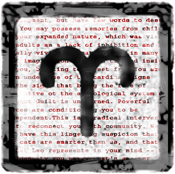
You may have an urgent need to break free from emotional patterns, though this may be showing up many different ways: a struggle in a relationship, a sense of confinement, the need to live someplace new or a burning desire to sever from history. Here’s the thing. People aren’t computers; we cannot just push the ‘restart’ button. We have to guide ourselves through an inner journey. Resolve and persistence can help when it comes to changing our psychological makeup, yet what typically happens is that when it’s time, it’s time; and it is time. You can facilitate your process by being honest about the past. One of the truly significant problems that often banishes growth is our struggle to do just that — though at this point you must observe and feel what you’re letting go of. There is a lot — and I do mean a lot — about letting go of the original impression of marriage or male/female relationships that you got as a child, and I suggest starting journaling a clear description of what those relationships were and how they felt.
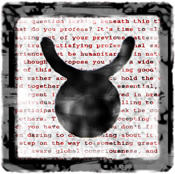
Notice the current paradox of your life, and check whether you have any attachment to it. It’s true that existence is often a process of exchange, and we seem to get one thing (or experience) at the expense of another. Or we could describe this exchange as giving up what we don’t need in exchange for what we truly want. You have a choice here: both of these options are open. However, you may be experiencing the need for an idealized notion of security or confidence that you don’t have yet, and a calling to focus your desire in a way that creates what you want. Simply put, what you want requires that you take a risk, and that risk specifically involves letting go of a notion of security. I suggest that you be extraordinarily specific about your desires. Rather than saying something general like you want to be confident, describe what that confidence would entail, what it would look like and how you would feel being there.

Financial growth can be about making more money, or it can be about evolving your ideas about money. If you’re a woman, you’ve been inflicted an extraordinary amount of cultural imprinting about your economic fortunes being tied to a husband or partner. If you’re a man, you’ve been imprinted with ideas about who you’re supposed to provide for, and why, and how well. It would be a stretch to call any of this ‘teaching’ — it’s actually branded into our emotional bodies with few alternatives available. You now seem be on the brink of releasing lots of this stuff, though the question is what you’re replacing it with. Intuitively you know you can work out a whole new relationship with money, though what you may not recognize is that this breaks down to more than a feeling; you need specific points of decision, and of action, and clearly several of these involve the role of money in your relationships.

You are poised for some extraordinary new success, and a whole new variety of achievement. One of the ways that you’ll be facilitating this is not being stuck in the personality structure of someone who has failed in the past, or who does not deserve recognition. I assure you this has nothing to do with your actual state of being. Once the concept of deserving comes up, you can be sure that there’s a defensive reaction somewhere in the equation. I suggest you observe its utter lack of usefulness. Indeed, this concept — deserving — may be the bone of contention you have with yourself, and it would help facilitate your happiness immensely if you would let this go. You have a plan, you have a vision, you are not merely competent but a kind of visionary — and your outer reputation reflects this. Allow these things to get the results you want, and they will.
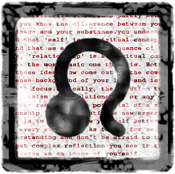
There seems to be no limit to the hidden layers of a human psyche, or what is contained there. More interesting is the extent to which this can conflict with our outer image: what we project to the world, and how we perceive ourselves in the world. Notice the discrepancies between the two over the next week or so: what you feel, and what you reveal; what you experience inwardly when the lights are off, and how the world sees you. I think you’ll learn a lot from studying the differences. The first question you’re likely to ask yourself is why they exist. You may run into some conditioning about what exactly makes you worthy of a relationship, which is to say, worthy of love: and which doesn’t treat you particularly kindly. Here is a secret: this concept is so old, we have no idea how old — but it has nothing to do with who you are today.
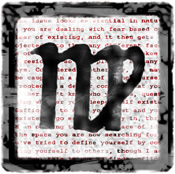
Devotion is a moment-to-moment activity. The technical details speak for themselves, if you’re listening. This time in your life may feel like one that is ruled entirely by necessity rather than by preference, desire or authentic choice, though this calls for some inner reflection. When you get to that point where you know something must happen, or that you know you’re doing the right thing by devoting yourself to an experience, the beauty of that moment is in your voluntary response to give yourself over. This applies to your erotic reality as well as any creative endeavor that you’re involved with. Rather than concerning yourself with the potential implications of anything you’re doing, I suggest you ground yourself in the present. Feel every nuance of your thoughts as they melt. Allow yourself to surrender one delicious moment at a time.
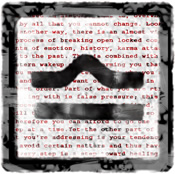
You are gradually gathering the presence of mind to fully take part in all that life is offering you, though it looks like some anxiety is getting in the way. There’s something inside that fear, though I suggest you evaluate it on one basis: what you are feeling has to do with trust. There’s so much energy coming at you that I could see you questioning whether you can feel safe with what is happening, or with the potential for so much change. Anxiety is the shadow side of an experience; the choice to trust is the side that offers light we can see by — including seeing our fear for what it is. You’re being summoned into a new world of experience, and it may seem that this world is entirely untested, unproven and unknown. Really, none of these things are true. But your choice to go beyond what is familiar — including a particular goal you’ve clung to for so long — will take you to a new depth of emotional confidence.
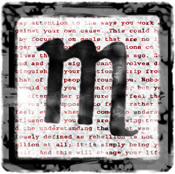
You seem to be obsessed with service. I mean, it looks really impressive, like at this rate you could end up on a Vatican coin. Yet you have another impulse coming from even deeper in, which looks like a passionate need to create or express something. The service thing may be a distraction, or an excuse to not give yourself something you really need. Or you may be trying to stay visible and connected to a community. I would remind you that your evolutionary fires are burning hot, and in many respects this has nothing to do with any other person. You are in relationship to yourself, and the depths of that are invisible to others — that is, until you reveal them. I suggest you nurture your inner journey for a little longer before doing so, and please be aware of when you’re distracting yourself from something you want and need deeply.
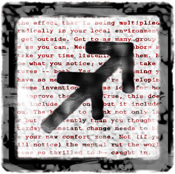
Have you noticed how many relationships are better after they break up? Not all the time, but often, the emotional communication is better, the sex is better, the friendship is deeper, and some other element is gone. Now why is that? What is it about the way we structure a relationship when we call it ‘a relationship’? What is it about how we have ungrounded expectations or unrealistic dependencies? And what is the whole drama of ‘breaking up’? When it works, that is, when the relationship has a solid basis in truth, it’s really more like opening up and setting one another free. Then, love is possible. It seems like all of your relationships can go through this transition, and liberate themselves into their next form. You don’t need the expectations, you don’t need to know the score, but what you do need is the freedom to feel what you feel in the presence of the people who matter to you — and this you have.
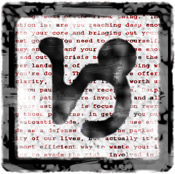
There is loving, and there is being open to love. Both are necessary to relate to other people, and on balance, being open to love seems like the one that people struggle with the most. You have just been through some profound experiences of opening up to yourself. Your charts look like you’ve made peace emotionally with a process of change that has been pushing you for a couple of years now. It’s as if you’ve accepted and settled into the journey, and the fact that many of the outcomes are uncertain. What you may have experienced is the peace of mind that comes with letting go of an attachment to the past, and this in turn makes embracing the new possibilities that much more appealing. You can be real with yourself about the fact that the potential for real change evokes fear in many people, though you seem to grasp that it’s a lot more fun if you can move beyond this obstacle.
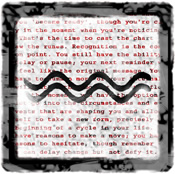
There is one aspect of your current erotic life that is all about service. There is another aspect that is about blazing into a new concept of experience that is all about flooding your mind and your senses with passion and joy. Oh, and ideas and a profound desire to liberate yourself and to relate to other people who are free. Do the two have anything in common? Are they directly opposed to one another? And on what basis are you choosing one or the other? You certainly have the option to be obsessed with the details of your relationships. Commitment is a truly significant issue for you. I would, though, caution you against ever thinking you know what is best for anybody but yourself. I don’t say that because it’s wrong; I say that because people are so good at concealing their agendas, and their insecurities, that it’s often very hard to tell.
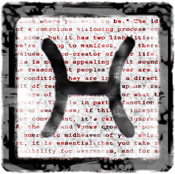
Two elements of your psyche that are both fully functioning, and close to one another, are ready to be integrated. You’re almost there. You haven’t quite got the intellectual notion of what they have in common: you still have this idea that they cancel one another out. This involves how you process money and your concept of money; and how, in turn, money relates to self-worth and independence; and finally how this influences the subtler parts of your being: your creativity, your receptivity, your desire to be free. There are still plenty of people who believe that money corrupts everything, and I suggest for your own sake and that of everyone around you that you go to the next dimension with this one. You now have within reach the actual experience of resources enhancing your creative gifts and doing nothing to detract. Deep at the core of both is a common experience, which is valuing yourself. And this is a day-to-day, hour-to-hour journey. Walk lightly.



